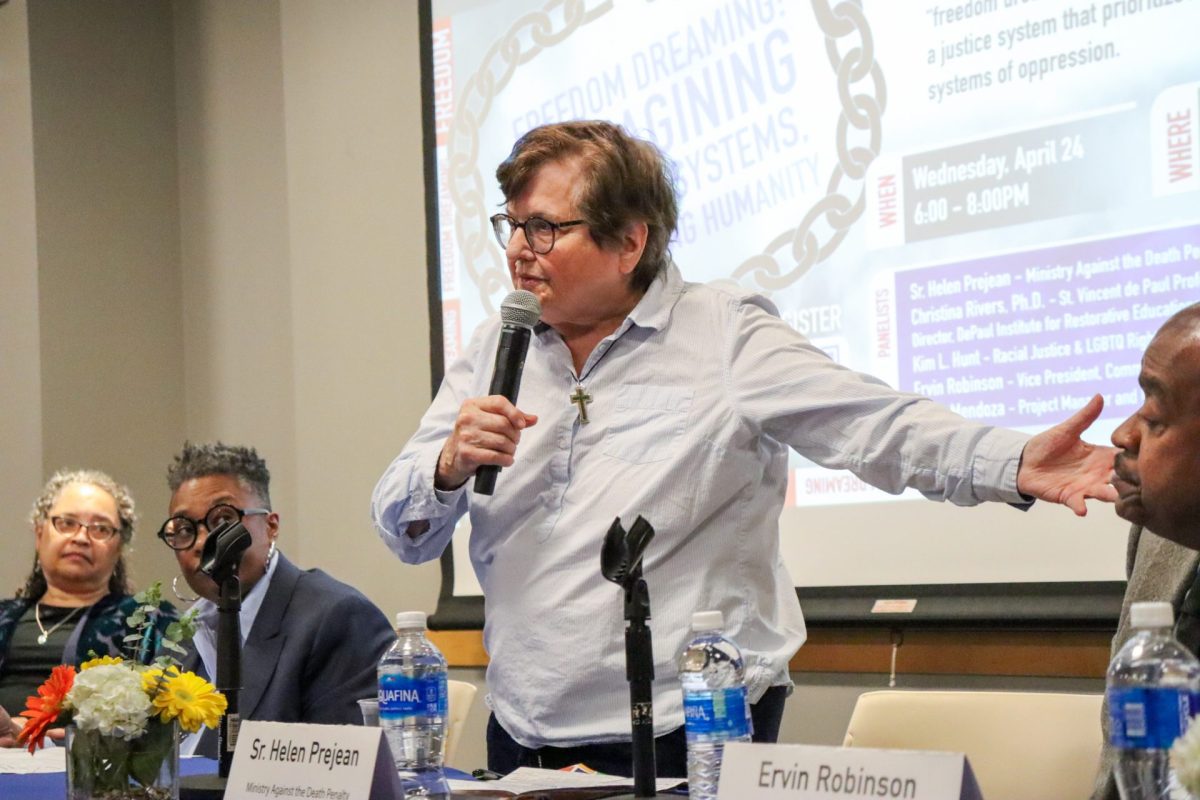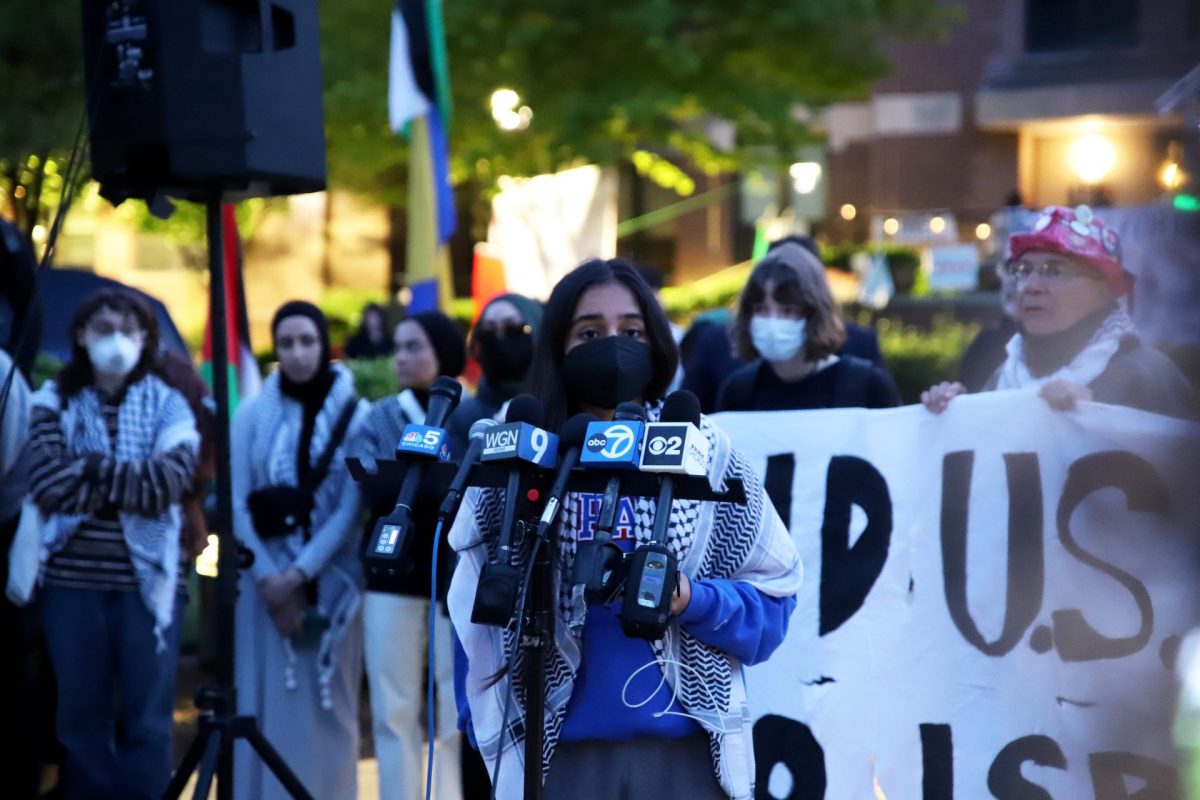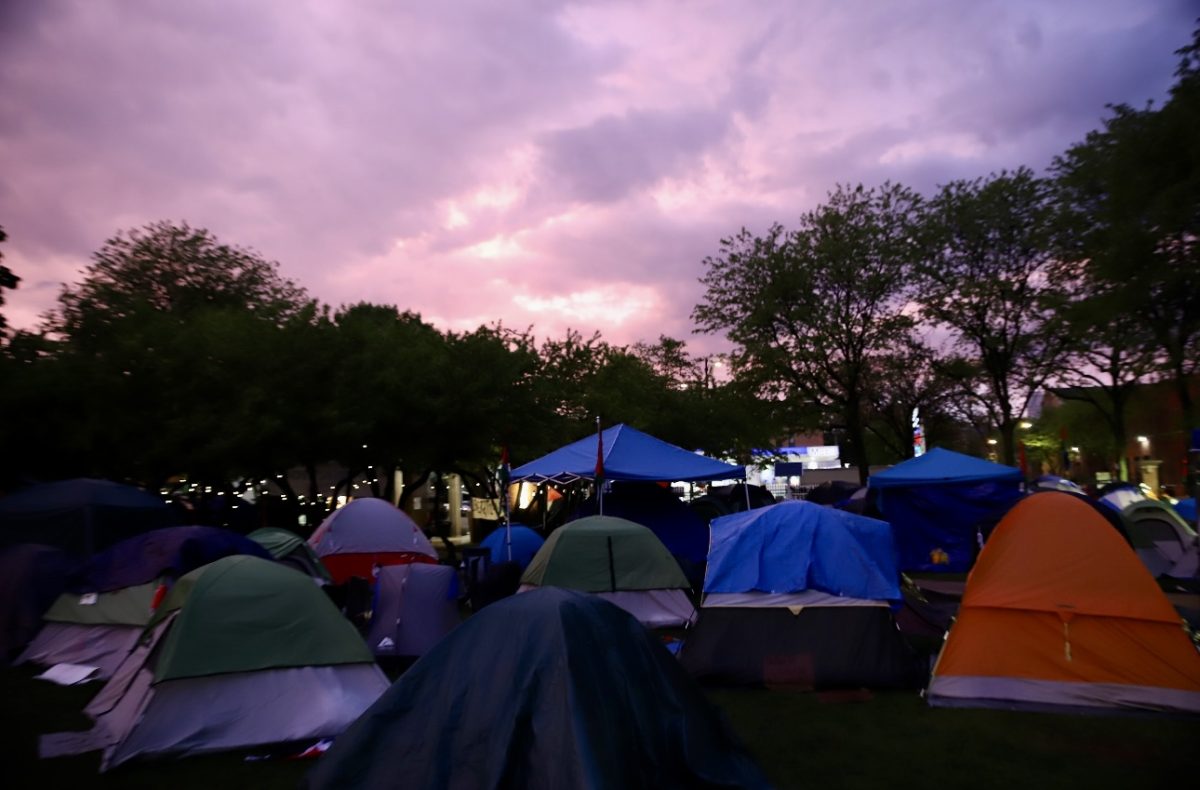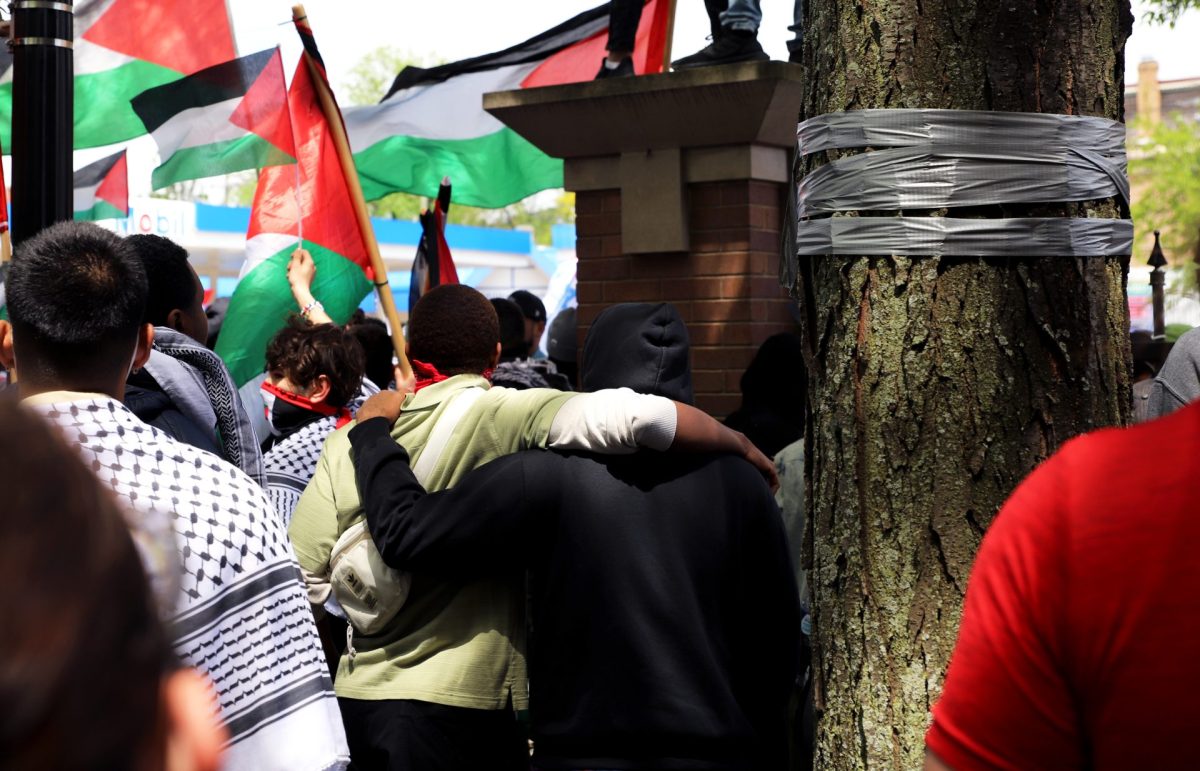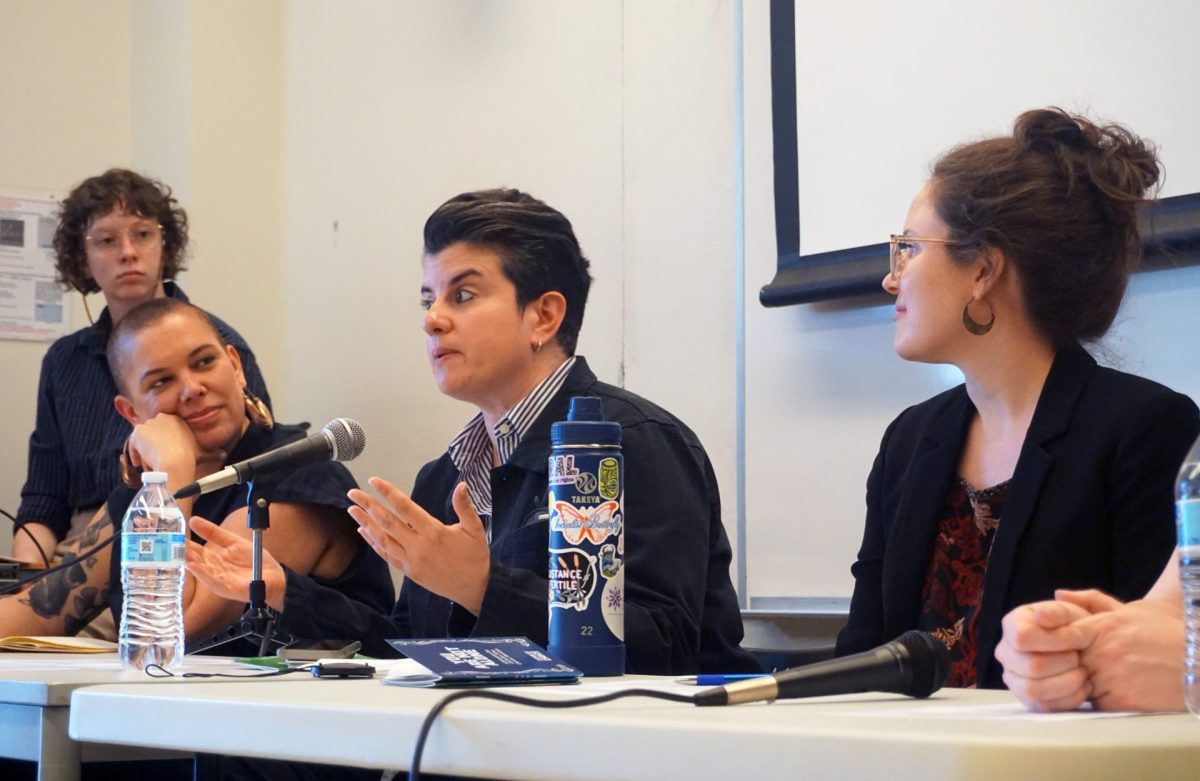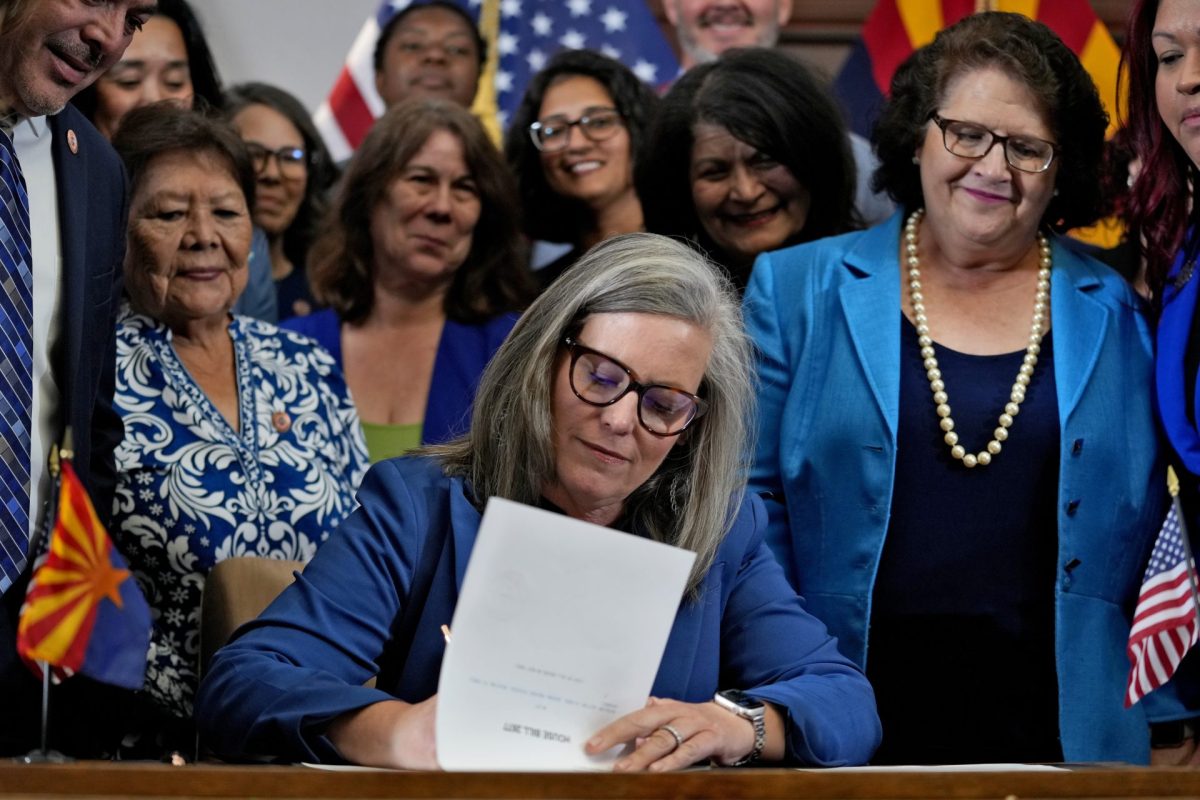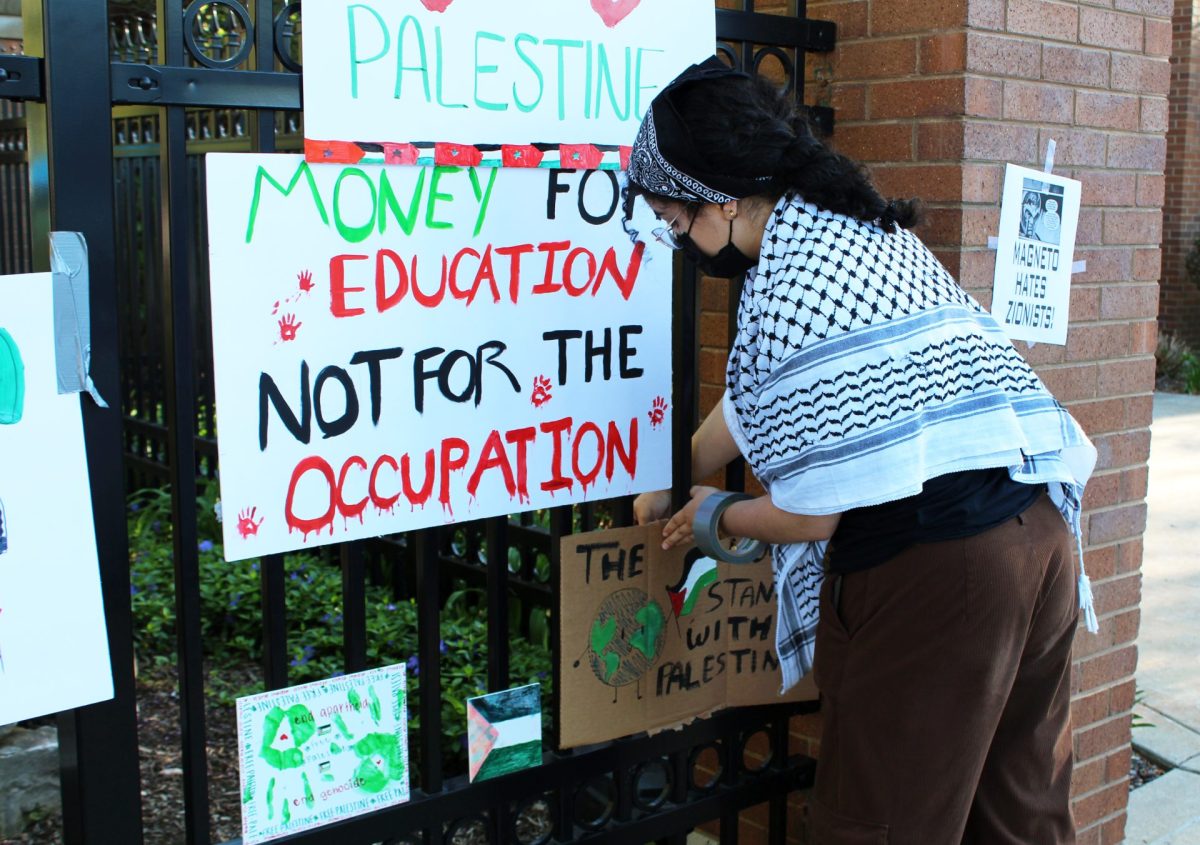“Show of hands, how many of you dream?”
This was the question moderator Kim Hunt asked a crowd of students, faculty and staff to kick off Wednesday evening’s panel discussion titled “Freedom Dreaming: Reimagining justice systems and centering humanity.”
Most audience members raised their hands.
The panel’s headline speaker, Sister Helen Prejean, too, raised her hand. She told The DePaulia that “freedom dreaming” is about imagining more humane alternatives to what she called America’s broken criminal justice system.
She said having a “prophetic imagination” must impel concrete change.
“To be willing to work in a practical way to make dreams come true, that’s the challenge,” Prejean said.
It’s a challenge Prejean and panelist Pablo Mendoza surmount each day.
After serving 22 years in prison, Mendoza co-created “Walls Turned Sideways,” an art gallery and community space that provides creative and educational outlets to people impacted by incarceration.
“It takes community for us to heal, but on the inside we were just surviving,” Mendoza said.
Panelist and DePaul political science professor Christina Rivers said trauma before, during and after a prison sentence is not adequately addressed, creating a cycle of more trauma instead of healing.
Rivers also discussed felony disenfranchisement.
“When someone is incarcerated in this country, they lose their right to vote, unless they live in Maine, Vermont or Puerto Rico,” Rivers said.
That leaves about 2 million people in the United States unable to influence local or national representation in their districts.
“There’s a lot about it that resembles the three-fifths clause, but in this case the ratio is one to one … when we’re talking about counting disenfranchised people in prison as members of a district, but they do not count at all,” Rivers said, referencing the pre-civil war law that counted enslaved people as three-fifths of a person to determine how many congressional representatives slave states would get.
Rivers’ freedom dream is to secure voting rights for incarcerated people.
Prejean, who turned 85 last Sunday, has dedicated nearly half her life to prison-reform advocacy through her ministry against the death penalty.
While living and working with the poor in New Orleans, Prejean began ministering to Elmo Patrick Sonnier, an inmate on Louisiana’s death row. After witnessing his execution in 1984, Prejean was moved to write her first book, “Dead Man Walking: An Eyewitness Account of the Death Penalty in the United States,” which was made into an Academy Award-winning film and opera of the same name.
She told The DePaulia that after attending the Opera version of “Dead Man Walking” at New York’s Metropolitan Opera last year, she returned home to find a letter from Texas death-row inmate Ivan Cantu.
The letter from Cantu requested that Prejean be with him at his February 2024 execution.
“I said ‘yes’ to him, and I knew what it meant,” Prejean said. “It meant doing everything I could to organize to resist this death and not passively just to accept it and then say a prayer with him to usher him into eternity. Because it’s wrong.”
Prejean and Cantu were anything but passive in the months leading up to his execution. Cantu insisted that his conviction in 2001 for double homicide was based on false testimony and questionable evidence.
Prejean said she believed Cantu to be innocent and tried, alongside him and his legal team, to postpone his execution date until after he received a fair trial.
“Even if he had been guilty, I would have worked to save him,” she said.
Despite celebrities like Martin Sheen and even Kim Kardashian publicly questioning his conviction, Texas put Cantu to death by lethal injection Feb. 28.
Prejean was in the room.
“I’m praying in his ear, the words of Jesus’ own prayer ‘Into your hands, I commend my spirit.’ I was just very conscious of Christ,” Prejean said. “Ivan was very brave.”
Prejean walked away from the execution with a mandate from God to not let Cantu die in vain, but to tell his story and expose the flaws in the justice system.
“I don’t have the luxury to say, ‘Oh, that’s so sad, I’m not gonna do this anymore,’” she said. “I owe it to him to honor his life and death.”
This experience galvanized Prejean’s mission as a witness to Cantu’s story.
The importance of storytelling as a catalyst for change is why she agreed to be the subject of Universal Studios’ documentary “Rebel Nun,” which premiers at the Tribeca Film Festival in June.
Just like her books and the movie “Dead Man Walking,” Prejean said the documentary will “get the story out there and bring people closer to the issue through the different art forms.”
She believes the American people are inherently good, just largely uneducated about the state of prisons and the death penalty. She aims to make the issues more accessible through storytelling.
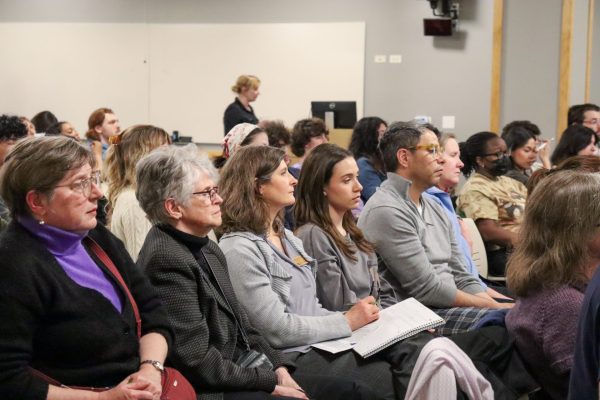
The panel conversation addressed failures in the criminal justice system, but largely focused on hope, renewal and re-imagining the future through advocacy and stories.
“This is all about community and coming together because we’re all humans,” DePaul junior Amelia Lewin said.
Rivers said it gives her hope to see young people and advocates fight to bring parole back to Illinois.
Mendoza derives hope from organizations like the Safer Foundation and FullyFree who provide re-entry resources and programs for formerly incarcerated people.
Prejean, meanwhile, said it gave her hope when the state of California moved inmates out of death row as a part of Gov. Gavin Newsom’s pledge to transform California’s prison system.
At one point during the panel, she turned toward Mendoza and told him, “Sitting next to you gives me hope.”
But just like dreaming, Prejean said hope must motivate continued advocacy and reform.
“Hope is an active verb. It can sound very complicated, look at all these systems,” Prejean said. “But you can do one thing where you’re part of something and make a change.”
Related Stories
- Sister Helen is back sharing the ‘Gospel of Encounter’
- DePaul panel discusses social and legal barriers to re-entry after incarceration
- Students against incarceration addresses prison injustice at Student Involvement Fair


